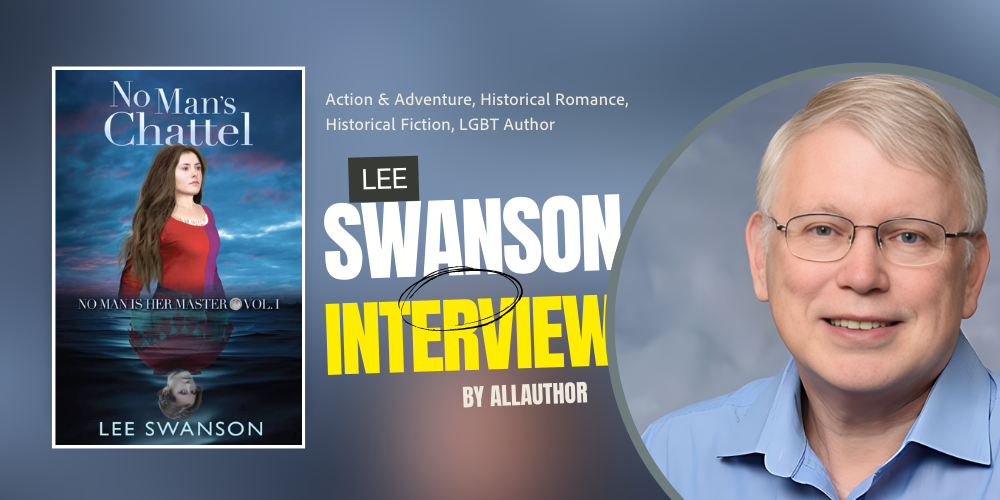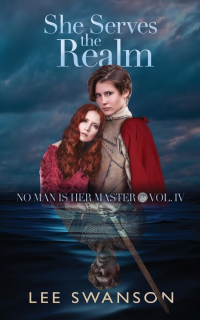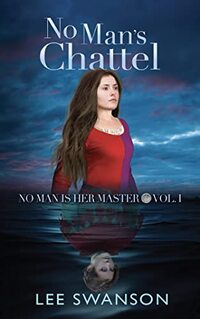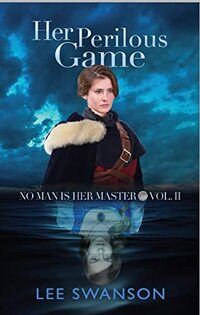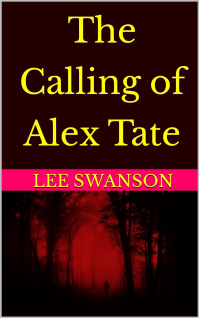How did living in Germany for fifteen years and England for ten influence your connection to the historical settings of your novels?
I was very fortunate to already have a keen interest in medieval history while I was living in Europe. Consequently, I took every opportunity to visit medieval towns, castles, and battlefields; especially those of the thirteenth and fourteenth centuries. This helped me bring the settings in my No Man is Her Master series to life with historical accuracy. For instance, if I hadn’t walked the grounds of Scarborough Castle, I would have never been able to accurately place the sally port in the upcoming fourth novel in the series, She Serves the Realm.
Can you share the moment or experience that sparked your fascination with historical fiction set in the medieval era, particularly the 13th and 14th centuries?
My first recollection of being enthralled by the medieval era was watching the film Robin Hood, with Errol Flynn. Looking back, I cringe at the liberties the movie took with costuming, setting, etc., but to a six-year-old boy who’d never left the farm it was pretty awesome and I was hooked. After that, I exhausted our school library of any books set in the Middle Ages.
What was your biggest dream as a child? Did it ever come true?
Truthfully, my biggest dream was getting off the farm. Having lived in Europe for twenty-five years and traveled to many other countries around the world, I can say I accomplished that. I feel my dream is still coming true as I have several journeys planned for the next few years as well.
Could you share your writing process? Do you have any specific rituals or routines that help you stay productive and creative?
I find my most productive time to write is in the mornings, so I usually dedicate at least a couple of hours from 10:00 AM to noon to writing and at least two cups of coffee. After lunch is when I do most of my research and a bit of social media.
Can you tell us about the research process you undertook to ensure historical accuracy in your novel, "Her Perilous Game"?
To begin with, no time was spent in a small ship during a raging storm, so I just had to imagine that! Much more pleasurable was the week I spent in Bruges, a marvelous medieval city. Much of the architecture remains from the 14th century, so it was very informative to see where structures were in relation to each other first-hand. I also spent time in the north of England, tracing Christina’s route from Berwick to Roxburgh and many, many hours poring over historical references.
Having visited the sites that comprise the settings for your novels, how do these firsthand experiences shape the way you describe and portray historical locations in your writing?
I have always believed “historical” is the most important word in historical fiction, so I strive to make my novels as historically accurate as possible. Nowhere is this more important than in describing the settings in which my novels take place. For my upcoming novel, She Serves the Realm, one of the major settings is Scarborough Castle in Yorkshire. I was very impressed by the strength of the fortifications and found it hard to believe the Earl of Cornwall (Piers Gaveston) surrendered so readily, supposedly due to lack of provisions. How could this be, as the walls enclose literally acres of land? Why did the earl’s men not confiscate the townspeople’s cattle when they realized they were about to be besieged? Christina asks the same question in the novel, prompted by my observation.
What challenges do you face when merging historical facts with fictional elements in your stories?
As I said previously, the historical aspect always comes first. It is often difficult, however, to find the reference needed for a particular detail I want to incorporate into my writing. For instance, my writing of Her Dangerous Journey Home came to a days’ long halt as I searched for details to include in Trudi’s wedding ceremony.
Your interest in the Hanseatic League is quite specific. What aspects of their history and activities do you find most captivating, and how do you incorporate these into your narratives?
I find the emerging merchant class of the 13th and 14th centuries extremely interesting, and the Hansa was at the forefront of this social movement. They established a trade network extending from Novgorod Rus’, to Bruges and London, eventually even to Venice. The Hansa merchants were also able to negotiate favorable trade treaties, especially in England, where they enjoyed privileges that exceeded those of the country’s own traders. This provides a wide scope of travel adventures and interactions for Christina Kohl, the protagonist in my No Man is Her Master series.
Could you share a bit about the themes you explore in your novel, "The Calling of Alex Tate"?
The Calling of Alex Tate is an interesting departure from historical fiction, as it is a contemporary crime novel/psychological thriller. The title character is a high school senior who takes on the role of a murderous vigilante. The themes of dark secrets, vigilante justice, and coming of age are central to the novel’s plot.
The seasonal shift between Virginia and Mexico seems like it could offer diverse cultural and natural influences. How do these environments contribute to the overall atmosphere of your novels?
Even though the central Mexican highlands is a far departure from medieval England, San Miguel de Allende does have several cultural aspects that seem more akin to the Middle Ages than the United Staes. The streets seem much more vibrant and alive, and the cobblestone paving everywhere is very reminiscent of historic town centers in Europe. Catholic churches are predominant and are at the center of everyday life in the city, with the tolling of bells still occurring on the hour. There are also numerous religious festivals, especially during the winter. Because of the limited parking in the city, we find ourselves walking everywhere, instead of driving.
How does your dog, Banjo, factor into your writing routine or creative process? Does he play a role in your stories, either directly or indirectly?
Every day in Mexico begins with taking Banjo on a long walk to the park. I usually find this a great time to organize my thoughts for the days writing, interspaced of course with dishing out a few treats along the way, of course. In my next novel, She Serves the Realm, Piers Gaveston gives a dog to Christina, an Alaunt, which I have patterned after Banjo, both good traits, like his fierce loyalty, and bad (licking himself!)
Are there particular challenges or joys you find in alternating between summer in Virginia and winter in Mexico, and how does this lifestyle influence your writing schedule and productivity?
Probably the biggest challenge is being distant from my personal library while I am in Mexico. Even though I try to anticipate what I will need while I am away and pack accordingly, I always find myself wishing I had brought else with me. A joy is finding myself getting a fresh perspective in the alternate locale, as it always seems like I think of something to add to my writing that hadn’t occurred to me before.
In your novels, do you aim to transport readers to the medieval era purely for entertainment, or do you also hope to impart historical knowledge or perspectives?
Having been a teacher for twenty years, I always want my readers to learn something from my books. The main reason why I sometimes include obscure medieval terms and references in my novels is that I have great confidence they will do a bit of research themselves.
Can you share any upcoming projects or novels you are working on? Are there new themes or time periods you are eager to explore in your writing?
I anticipate the fourth installment in the No Man is Her Master series, She Serves the Realm, will be available in June, 2024. I’m really excited about the novel, as it is very closely tied to actual events in the struggle between King Edward II and his rebellious barons, particularly concerning Piers Gaveston. It is also bordering on a historical romance, as the relationship between Christina and Lady Cecily forms a dominant part of the narrative.
Also, I am finishing up the first novel in a new series, set in the time of Edward I and his queen, Alienor. The story centers on the historic figure of Isabella de Vesci (née Beaumont), who travels from France to become a lady-in-waiting to the queen. Isabella is quite a departure from Christina Kohl, but there are plenty of plot twists and daring exploits, so I hope it will keep all the fans of the No Man is Her Master series happy as well.
How has your experience of being associated with AllAuthor been?
Excellent! I have loved all the features, especially the tools. I have also been able to connect with a few of the other authors using the site. Great value for the money!


